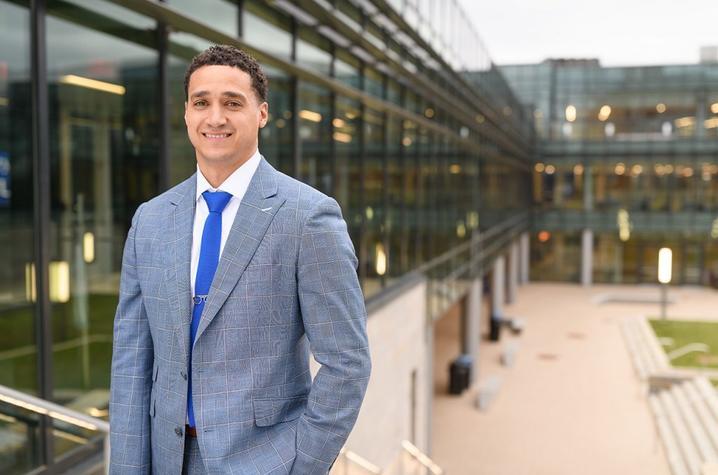Op-ed: November is National Adoption Month #AdoptKY

LEXINGTON, Ky. (Nov. 10, 2022) — The following op-ed about National Adoption Month was written by Jay Miller, dean of the College of Social Work at the University of Kentucky.
Every child, no matter the context, needs a permanent family. Having been in out-of-home care myself, I can personally attest to this need.
As a youth, I was placed in out-of-home care as a result of the death of my mother and my father’s inability to beat his addiction to substances. My sisters and I spent several years shuffled from place to place before being taken in by an aunt and uncle.
I was 16.
For my sisters and me, the stability provided by our “forever home” made all the difference. The sense of safety allowed us to flourish. No more neglect. No more abuse. Frankly, if not for their willingness to open their home and their hearts, I’m not sure where I would be.
Indeed, family matters.
Since 1995, November has been marked as a time of deep introspect about adoption. This year, National Adoption Month is focused on the importance of permanent, adoptive homes for older youth.
Perhaps now, more than ever, it is imperative we all take stock of this focus. In Kentucky, there are more than 8,000 youths in foster care. Of those, approximately one-third are waiting to be adopted. Whilst every effort is made to find adoptive homes for these youth, the unfortunate reality is that for many of them, particularly teens, the comfort of a safe, stable forever family will never be actualized.
Research shows that adoption can be profoundly impactful for youth in foster care. Studies illustrate that adopted youth tend to experience higher levels of emotional and physical wellness, financial stability and fewer instances of trauma when compared to their non-adopted counterparts. As well, families who adopt often experience a sense of fulfillment, love and immense gratitude.
Indeed, family matters.
Unfortunately, research also shows that teens are seldom adopted. Though younger children are often adopted relatively quickly, adoption rates drastically decrease for older youth. Nationally, only about 25% of adoptees in 2019 were 9 years or older. Those not adopted usually “age out” of foster care, which puts them at an increased risk for a host of problematic circumstances. Adoption can assuage these circumstances.
Indeed, family matters.
There is a plethora of benefits to adopting older youth. For example, older children can actively participate in adoptive processes, which often means things move more quickly. As well, there is typically more documented information about older youth. This will allow parents to more adeptly assess, address and understand any needs the child may have. Parents who adopt older kids may also be eligible for educational benefits, tax credits and support initiatives/programs. Did I mention that older children don’t typically require diapers or babysitters?
Indeed, family matters.
In the coming months, as it usually does, attention will shift to an everlong season of holiday pomp and pageantry. Nestled between office parties, shopping trips and watching reruns of "A Christmas Story," many of us will find solace in spending time with loved ones. During these times, I implore you think about those, both young and old, waiting for their forever family.
Because after all — Family. Matters.
For more information about adoption in Kentucky, please visit https://prd.webapps.chfs.ky.gov/kyfaces.
As the state’s flagship, land-grant institution, the University of Kentucky exists to advance the Commonwealth. We do that by preparing the next generation of leaders — placing students at the heart of everything we do — and transforming the lives of Kentuckians through education, research and creative work, service and health care. We pride ourselves on being a catalyst for breakthroughs and a force for healing, a place where ingenuity unfolds. It's all made possible by our people — visionaries, disruptors and pioneers — who make up 200 academic programs, a $476.5 million research and development enterprise and a world-class medical center, all on one campus.




